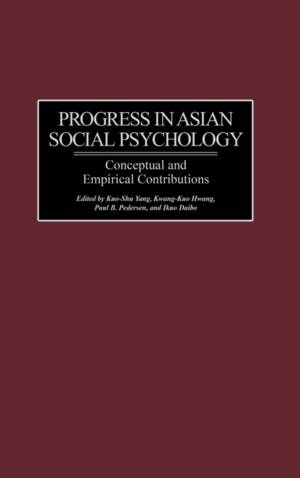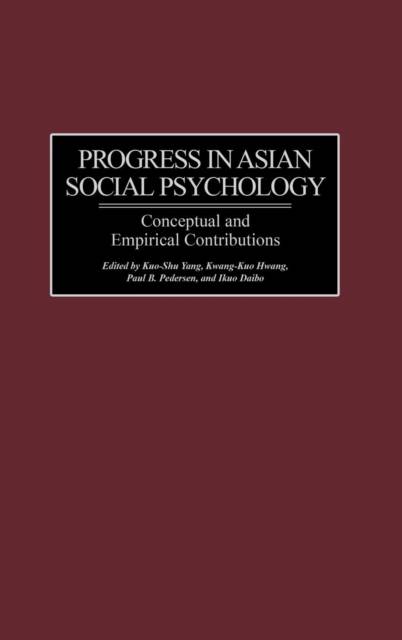
- Retrait gratuit dans votre magasin Club
- 7.000.000 titres dans notre catalogue
- Payer en toute sécurité
- Toujours un magasin près de chez vous
- Retrait gratuit dans votre magasin Club
- 7.000.0000 titres dans notre catalogue
- Payer en toute sécurité
- Toujours un magasin près de chez vous
Progress in Asian Social Psychology
Conceptual and Empirical Contributions
Kuo-Shu Yang, Kwang-Kuo Hwang, Paul PedersenDescription
This volume presents ways of thinking dramatically different from mainstream psychology, which is seen by many as primarily a product of Western civilization. Asian social psychologists in this edited collection apply Asian perspectives to issues of major concern in their societies, including parental beliefs about shame and moral socialization in Taiwan, Hong Kong, and the United States; achievement motivation in Taiwan and the United States; and the effects of school violence on the psychological adjustment of Korean adolescents. Other chapters examine the role of social psychologists in Confucian societies, and group dynamics in Japan. The authors believe psychological research using an indigenous approach will enable Asian as well as non-Asian psychologists to understand the cognitions and behaviors of Asian people more accurately.
Scholars and students interested in Asian psychology, social, cultural and cross-cultural psychology will find this volume of interest.Spécifications
Parties prenantes
- Auteur(s) :
- Editeur:
Contenu
- Nombre de pages :
- 344
- Langue:
- Anglais
- Collection :
Caractéristiques
- EAN:
- 9780313324635
- Date de parution :
- 30-03-03
- Format:
- Livre relié
- Format numérique:
- Genaaid
- Dimensions :
- 159 mm x 241 mm
- Poids :
- 707 g

Les avis
Nous publions uniquement les avis qui respectent les conditions requises. Consultez nos conditions pour les avis.






